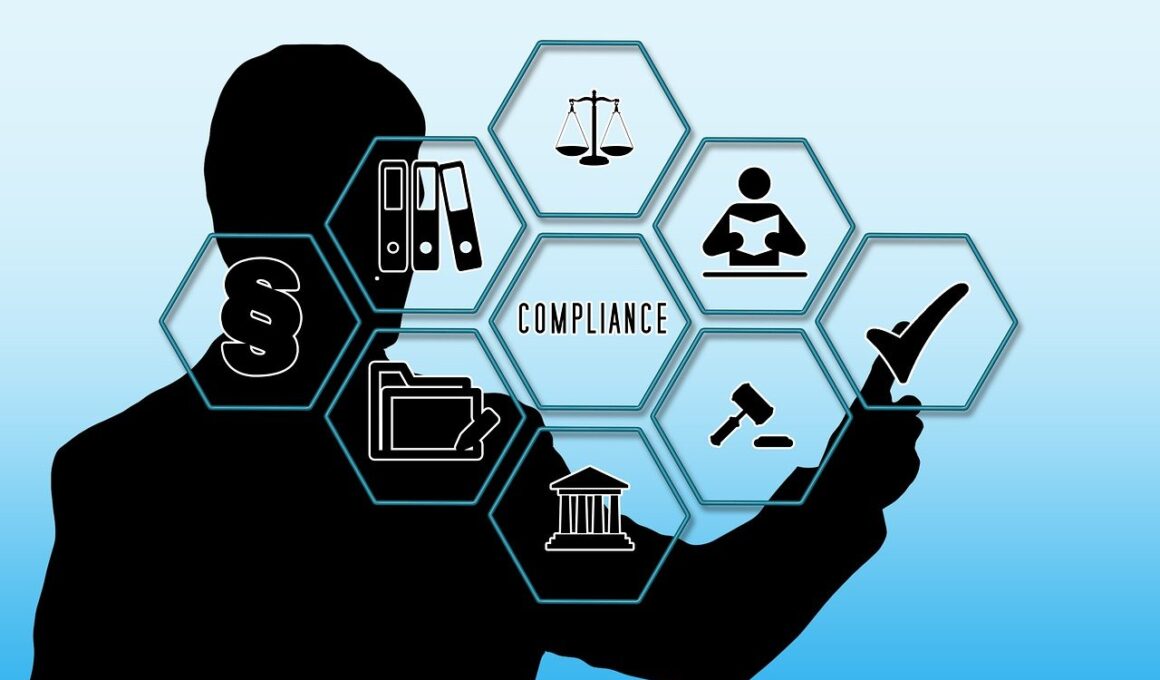The Impact of COVID-19 on Franchise Compliance and Regulation
COVID-19 has significantly reshaped the landscape of franchise compliance and regulation, posing unprecedented challenges for franchise systems worldwide. As businesses struggled to adapt to the pandemic’s constraints, many franchise owners faced a host of legal and operational hurdles. The constant shifts in regulations pertaining to health and safety, as well as economic relief programs, necessitated an agile response from franchisors and franchisees alike. Compliance with changing legislatures became daunting, ultimately leading many to seek legal counsel and resources for guidance. The varying degrees of government restrictions have affected franchise operations in diverse ways, calling for flexibility in contractual obligations and operational protocols. Additionally, the pandemic amplified the importance of a robust communication strategy between franchisors and franchisees. Franchisors had to convey updated compliance information to ensure uniform understanding and adherence across their networks. Furthermore, the impact extends beyond legal frameworks to the very essence of franchising, as brands needed to maintain their reputation. Failure to comply with local and federal regulations during this crisis could result in legal actions or damage to brand integrity, making adherence a frontline priority for franchise entities.
Compliance has shifted amid the pandemic, thus requiring larger adaptations by both parties involved in franchising. Many franchisors had to reevaluate their operational guidelines and training protocols, updating them to reflect the current health risks and compliance needs. This included providing franchisees with the necessary tools and resources to ensure ongoing adherence to evolving food safety standards, employee welfare guidelines, and customer safety measures. By emphasizing training, franchisors not only strengthened compliance but also empowered franchisees to navigate through the uncertainties. Many also adopted new technologies to facilitate communication and training, leveraging video conferencing platforms for remote coaching sessions. The necessity for enhanced compliance management has become a focal point, as many franchised businesses experienced disruptions during the shutdown. Some brands developed comprehensive resource centers or dedicated hotlines to support franchisees with compliance queries. These proactive measures aimed at compliance management supported franchisees in maintaining operational standards and safeguarding their reputation. Moreover, establishing a culture of compliance started to become integral to maintaining effective business practices. This emphasis on compliance will likely endure, shaping the future of franchising post-pandemic.
Franchise Relationships and Compliance
The COVID-19 pandemic also strained the relationships between franchisors and franchisees, necessitating a cooperative approach towards compliance and mutual support. Many franchisees confronted substantial revenue losses during the crisis, leading to widespread discussions surrounding financial support and relief from contract obligations. Franchise agreements usually have clauses that protect franchisors during legitimate challenges, yet the pandemic’s nationwide impact prompted many to negotiate terms. Franchisors were often required to show flexibility in their contractual obligations to support their franchisees, ensuring a better chance of survival for the network. Building trust became vital for lasting relationships, and regular updates from franchisors helped mitigate uncertainties. Transparency in communication regarding compliance requirements and operational expectations also became critical. Through empathetic engagement, many brands cultivated an environment where franchisees felt valued and understood. Moreover, this experience fostered a sense of community among licensing networks, where sharing best practices regarding compliance was encouraged. Many franchise organizations initiated forums or virtual meetups, focusing on compliance discussions to collectively navigate the new normal while sharing success stories amidst adversity.
As the pandemic continues to develop, the long-term implications for franchise compliance and regulations remain a topic of discussion. Businesses worldwide are analyzing lessons learned from COVID-19 to establish more resilient frameworks for compliance. Compliance is expected to take on a stronger focus in franchise agreements moving forward, fostering a culture where franchisees take genuine responsibility for aligning with regulatory standards. This could transition future franchise agreements to include more comprehensive compliance clauses, clarifying expectations and providing guidance on navigating crises. Furthermore, the pandemic highlighted the necessity for periodic updates and revisions to these agreements, ensuring responsiveness to external factors influencing operations. Franchise organizations are beginning to prioritize resources dedicated to compliance, reinforcing the importance of adhering to local and national regulations. Such shifts not only cater to immediate needs but also bolster overall network integrity. As new regulatory contexts emerge from the lessons drawn, franchises must remain vigilant and prepared to adapt. The evolution of compliance practices will shape how franchises operate consistently, internally and externally, setting a precedent for resilience across the franchise sector.
The Role of Technology in Compliance
Technology has emerged as a critical ally in business operations and compliance management during the pandemic. Franchise brands that leveraged digital tools navigated challenges more effectively, showcasing how technology’s integration can fortify compliance efforts. From online training modules to digital checklists, franchises began adopting technologies that facilitate streamlined operations while ensuring adherence to health protocols and regulations. Implementing platforms for managing compliance documents, tracking changes in laws, and gathering real-time feedback created a sense of structure within franchise operations. Digital solutions empowered franchisors to monitor franchise compliance remotely, providing them clearer visibility concerning adherence across all locations within their network. Additionally, utilizing technology for communication between franchisors and franchisees increased the responsiveness of networks to compliance issues as they arise. The pandemic landscape underscored how franchises must embrace technology not merely as a convenience but as a fundamental requirement for success. Going forward, technology usage in compliance is likely to expand further, fostering a proactive approach to managing regulatory requirements. The future of franchising will likely embody a blend of traditional practices and tech-enabled oversight, enhancing both operational efficiency and adherence standards.
Regulatory bodies also recognized the need for flexibility and adapted their approaches to compliance amid COVID-19. Many states and municipalities introduced temporary changes to regulations which affected franchise operations. Guidelines for health inspections and compliance checks underwent modifications, allowing businesses to adjust without sacrificing operational standards. Some regulations were relaxed, giving franchises newfound avenues to remain operational while complying with health mandates. Critics argue that while the crisis necessitated leniency, it also raises questions about the consistency of compliance regulations that must be addressed moving forward. Franchise networks must prepare for these regulatory shifts, understanding that evolving guidelines will now be part of their operational landscape. Additionally, franchise systems must remain vigilant regarding potential permanent changes in compliance requirements that might persist post-pandemic. Engaging with regulatory agencies and industry associations can provide crucial insights to navigate this evolving landscape effectively. Understanding the implications of regulatory flexibility will be essential for franchises looking to safeguard their operational viability. As franchises emerge from this crisis, navigating changes in compliance will require intention, adaptability, and a commitment to upholding industry standards.
Looking Ahead: Future Compliance Strategies
As the franchising industry looks toward recovery in the post-COVID-19 environment, developing robust compliance strategies will be paramount. Learning from the disruptions experienced during the pandemic, franchises must enhance their frameworks to ensure agility and resilience in compliance management. The integration of compliance tools and frequent assessments to gauge the evolving regulatory landscape should be supplemented by proactive training for franchisees. Educational programs tailored to emphasize compliance best practices will empower franchise output with knowledge, enriching relationships within the overall system. Moreover, involving franchisees in developing compliance practices can foster shared ownership over their operational standards. This collaborative approach builds trust and ensures that compliance measures are practical for all franchisees. Additionally, anticipating future crises will require prototyping various response strategies to ensure smooth adaptation during unforeseen events. The collaboration between franchise networks will yield valuable insights, maximizing the effectiveness of compliance measures. Innovating on compliance strategies positions franchises favorably in the face of future challenges. In fostering a culture centered around compliance, franchise systems can bolster their sustainability and enhance long-term growth potential, nurturing a stronger community in the franchise ecosystem.
In conclusion, the pandemic has fundamentally reshaped the compliance requirements and operational dynamics of franchise systems. With a renewed emphasis on supporting franchisees, innovating through technology, and engaging with regulatory bodies, franchising networks will move toward a more collaborative future. The realization that resilience within compliance will be determined by franchisees responding to shared challenges stands as a testament to the strength and adaptability of the franchising model. Establishing and maintaining compliance must now remain a priority, as brands navigate the uncertain waters of the post-pandemic world. As franchisors and franchisees move forward, a balanced approach will remain essential. Promoting open dialogue, sharing best practices, and investing in compliance training can collectively ensure that franchises respond effectively to future regulatory changes. The impact of COVID-19 on franchise compliance will be felt for years, shaping how franchises operate, interact and evolve in a changing marketplace. The collaborative spirit fostered during these troubling times may ultimately define the future of franchising as networks continue to grow. Developing strong, flexible compliance measures will be key for navigating tomorrow’s challenges in the franchising landscape.





